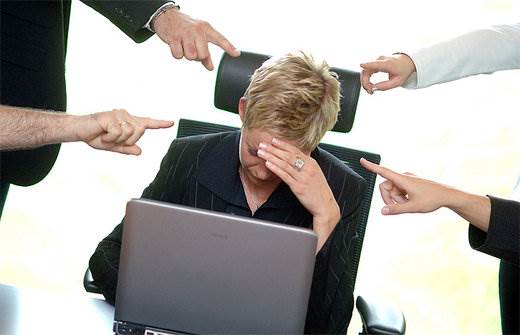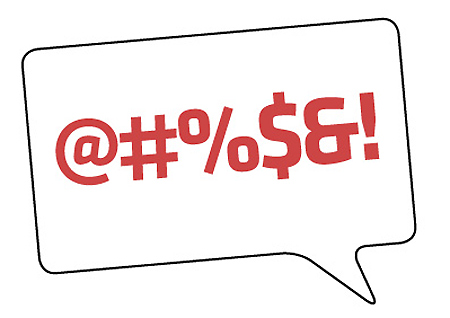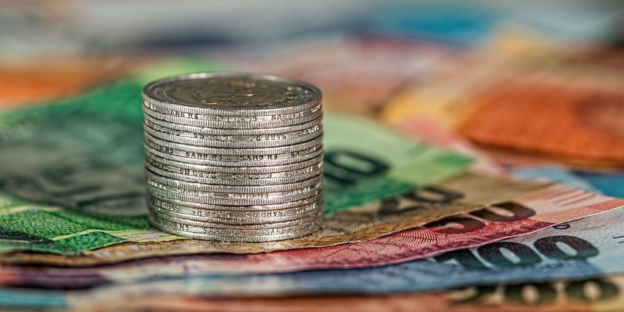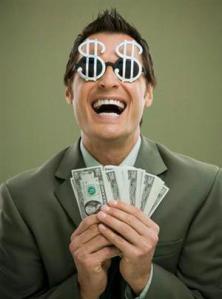Women and appearance in the workplace
I’ve come across a lot of material recently about how women should conduct themselves in the workplace ranging from: smiling (too much/too little,) speaking up (too late/too quiet/too much,) stretching the rules (not enough/taking advantage,) flirting (do/don’t) and it just seemed to me yet again that women are in a double bind. Damned if they do and damned if they don’t. The final straw was when I saw an article about a woman in Citibank who was fired for being “too hot” , when the bank’s own diversity instructions and career advice for women encourages them to be more visible. But can a woman be too sexy for her job?
Beauty backlash
Reading the discussion, Debrahlee Lorenzana seems to be in a no win situation, with comments ranging from “she should dress in looser fitting clothes” to ” she was too focused on her clothes to do her job properly” , to “well she’s making a fuss about this to get into Playboy!” See below and make up your own mind.
Fired for being too hot
In a prepared statement Citibank said: “While we will not discuss the details of her case, we can say that her termination was solely performance-based and not at all related to her appearance or attire….”
Survey
In a survey contacting 60000 respondents with Elle Magazine and NMBC , 61 percent of women said they thought men judged them on their looks, followed by work ethic (54 percent) and accomplishments (49 percent). Do men ever struggle with the same quandaries about appearance and clothes?
Are they too sexy for their suits
Do they fret if their shirts are too tight or body hugging? Are bulging biceps a concern? Ladies, I said biceps! Do they worry about being fired for being too manly? Not one bit it would appear. Men feel that female colleagues judge them on work ethic first (43 percent), accomplishments (40 percent) and looks (32 percent).
Need help with your professional image? Check out the coaching programme that will give your an authoritative look, that you will feel comfortable with.
However, research indicates “both attractive men and women are often seen as more talented, kind, and intelligent and that can lead to promotions and raises,” says Gordon Patzer, author of Looks: Why They Matter More Than You Ever Imagined. Unattractive men, meanwhile, earned 15 percent less than their attractive coworkers in a London Guildhall University survey of 33-year-olds. Unattractive women earned 11 percent less. Whatever attractive means.
Advantages
So if there are lots of advantages to being good-looking it would seem short-sighted not to capitalise on a natural asset or even enhance one that is less than perfect. Like Debrahlee Lorenzana, if they’ve got it, should they make it work for them? How different tactically is it to strategic networking for example? Isn’t it about stretching the rules and being visible? Who defines the parameters of those rules anyway. Is this a case of suggesting we stretch the rules but only if it’s in a certain pre – approved (male-style) way. But how far do you go?
There is an ugly downside side to beauty in the workplace carrying certain advantages.
An increasing number of people who feel less blessed, are starting to facilitate their career opportunities with not just a makeover, but via plastic surgery , a sort of job seeker’s nip/tuck to give them that push up the corporate ladder. That could lead to a whole other “lookist elite ” sounding vaguely sci fi -ish which bothers me.
Double bind
I asked Katie a young women in her mid -20s, based in California, a beauty in anyone’s eye, how she dealt with it all. She told me ” I am very careful about my personal dress code and tend to keep it functional and neutral. I am also very mindful of the work and social divide and rarely join the guys for after work drinks, wanting to keep my business and personal personas completely separate. I want to be treated and judged only by my professional performance”
Marcia , on the other hand, tall , slim, blonde, is based in London and takes a different view. “I work in a male dominated environment. My company has a dress code which I more or less follow. I like to make a statement in the way I dress, while appearing groomed and professional. I don’t want to blend into the background, but I’m not deliberately sexually provocative. I am aware of my male associates checking me and the other girls in the office out, but I ignore it. It’s never been an issue professionally in fact it’s been helpful. People remember me “.
If you’re an attractive woman should you hide your light under a bushel or a burka?
Playing to win
So if you’re an attractive woman and use your looks to your advantage, is that strategically savvy or a cheap shot? Should you hide your light under a bushel or a burka? Men seem to feel it’s the responsibility of the women not to distract them from the task in hand with their attire or good looks, rather than take responsibility for their own behaviour and libidos. But good-looking ladies also come under fire from other women, going back to the anthropological drive to snare the best men, typically found at the top of organisations, which is sometimes even tougher to deal with. Whoever said women are too nice, clearly hasn’t negotiated the minefields found in ladies’ powder rooms. There are fewer snipers in Kabul.
So pretty women seem to get flak from all sides and each woman therefore has to find the way which suits her best and the one she feels comfortable with, whether it’s statement, visibility raising dressing, or biz neutral. But above all, she has to put in a good performance. In the meantime we can hope that cultural perceptions will change, but truthfully, can today’s women wait long enough for that to happen?
What do you think?
If you needs to boost your career – get in touch now.










